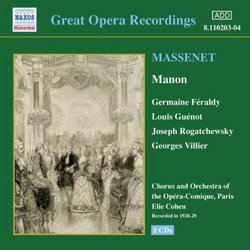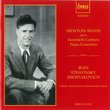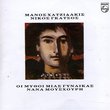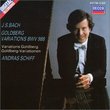| All Artists: Massenet, Feraldy, Guenot, Rogatchewsky, Cohen Title: Great Opera Recordings: Massenet Members Wishing: 0 Total Copies: 0 Label: Naxos Original Release Date: 1/1/2028 Re-Release Date: 4/15/2003 Genre: Classical Style: Opera & Classical Vocal Number of Discs: 2 SwapaCD Credits: 2 UPC: 636943120323 |
Search - Massenet, Feraldy, Guenot :: Great Opera Recordings: Massenet
CD DetailsSimilar CDs
|
CD ReviewsExcellent performance in pretty good sound, despite its age L. E. Cantrell | Vancouver, British Columbia Canada | 07/05/2006 (5 out of 5 stars) "SOURCE: Studio recording by French Columbia, December 1928 through March 1929, and subsequently issued on 36 sides at 78 rpm. It will be noted that while the leading performers remain consistent throughout, smaller parts were apparently taken up by whomever was conveniently available during the recording sessions. SOUND: This performance, the first complete "Manon" recorded by electronic means, was digitally remastered by the admirable Ward Marston from two sets of French and two sets of American 78 rpm pressings from which he cherry-picked the best renderings. Marston has this to say: "The sound of this recording is extremely good for its time possessing an excellent balance between the singers and the orchestra. Its major flaw, however, is the fact that it was recorded in an acoustically dead studio with the singers placed a bit too close to the microphone. I have taken the liberty of adding a small amount of artificial reverberation which will, hopefully, give the performance a more pleasant sound without detracting from its immediacy." He points out that "two sides in Act I were defectively recorded. The first of these ... begins with the words 'Allons Messieurs' [Track 2]. The sound here is extremely distorted and strident, resisting my best efforts at improvement. The same sonic flaw afflicts ... 'Hotelier de malheur' [Track 6]." As is often the case, Marston is too hard on his own work. The current version sounds fine--amazingly so, considering its venerable age. There is some hiss and the orchestra is somewhat compressed in range and depth. Nevertheless, compared to some true sonic horrors that manage to retain legions of admirers--the appalling Callas/Del Monaco "Andrea Chenier" comes to mind, and a Callas "Trovatore" from Mexico--this "Manon" seems positively high fidelity. Some audiophile reviewers have significantly downgraded their appraisals of this recording because of Marston's juiced up reverberation. They are out of their minds. CAST: MANON LESCAUT - Germaine Feraldy (soprano) LE CHEVALIER DES GRIEUX - Josef Rogatchewsky (tenor) LESCAUT - Georges Villier (baritone) LE COMTE DES GRIEUX - Louis Guenot (bass-baritone) POUSETTE - Andree Vavon (soprano) JAVOTTE - Jeanne Rambert / Mme. Ravery (sopranos) ROSETTE - Andree Bernadet / Marguerite Julliot / Marinette Fenoyer (sopranos) GUILLOT - Emile de Creus (tenor) DE BRETIGNY - Jean Vieuille / Andre Gaudin (baritones) L'HOTELIER - Paul Payan. CONDUCTOR: Elie Cohen with the Chorus and Orchestra of the Opera-Comique, Paris. DOCUMENTATION: No libretto. Summary of the plot keyed into the track listings. Thumbnail biographies of Feraldy, Rogatchewsky, Villier and Guenot--plus rather less on Cohen. FORMAT: Disk 1 - Act I, tracks 1-10; Act II, tracks 11-14; Act III, Scene 1, tracks 15-20; 76:08. Disk 2 - Act III, scene 1 (continued), tracks 1-4; Act III, Scene 2, tracks 5-20; Act IV, tracks 11-15; Act V, tracks 16-17; 65:25. TEXT: This is a typical performing version of its time with some minor cuts and a few omitted musical transitions. COMMENTARY: When asked why he was writing an opera on the subject of "Manon" only a decade after the premiere of Massenet's popular work, Puccini made some slightly disparaging remarks about French perfumes and minuets. It so happens that I think Puccini was right and that his "Manon Lescaut" is a better opera. Those of you who hold the opposite opinion--and I am sure that would include the previous reviewer, "Charlus"--feel free to dismiss me out-of-hand as a pasta-swilling, verismo-bonged yahoo. In fact, I strongly recommend the comments of the learned and passionate "Charlus" here and elsewhere in which he (or she) eloquently defines and defends the long-gone authentic French performing style. I entirely agree with "Charlus" and Mr. Morrison that this recording is an excellent example of that style. This "Manon" is fully as French as a Citroen automobile. I further agree that despite its age, this is a fine performance--possibly even the finest recorded performance! (An earlier, mechanically recorded version, perhaps even more stylish, is capable of being admired, but because of its sonics can hardly give much pleasure.) But ... the British have a word to describe certain things; they call them "twee." I think it is a particularly unpleasant word--a word of total dismissal in an amused and ironic tone. (There are some, of course, who use the word as a term of admiration--they, themselves, are twee.) The authentic French performance style and the authentic French singing style are perilously close to being twee at the best of times. Here, with this recording, they yield a pleasing and highly satisfactory performance. Any more of it, though, and there is clear and present danger of sugar shock. (A couple of years later, Elie Cohen conducted a superb rendering of Massenet's "Werther" which is a better performance than this "Manon" because the composer's musical idiom is less ... er ... decorative and because the Werther, tenor Georges Thill, was manifestly not a twee performer.) Elie Cohen is that rarest of things, a significant musical personage who has almost entirely eluded the internet. He seems to have made his debut at the Opera-Comique in 1922. He regularly conducted both ballet and opera there. By the mid-1930s, he had made three complete opera recordings, "Manon," "Werther" and "Carmen," all of which are excellent. At that point he becomes invisible. Germaine Feraldy (1894-1949), was based at the Opera-Comique from 1924 to 1942 and was regularly in demand outside of France. Her light, bright, precise voice is exactly in the French style. She was highly adept in an almost conversational style of operatic singing. Joseph Rogatchewsky (1891-1985) was born a Ukrainian but clearly was French in every other sense. His Des Grieux is admirable, precise, elegant, but (intentionally, I think) not very passionate. This is a historic recording. If it had been recorded in 1959 rather than 1929, it would be a strong candidate as the recording of choice for "Manon." It remains an excellent choice as a second or back-up "Manon" and for those who can bear non-DDD sound, it may well be the one most often played. Five authentically French stars." "Manon" in True French Style J Scott Morrison | Middlebury VT, USA | 05/08/2003 (4 out of 5 stars) "Most operalovers would agree that the great tradition of French opera singing and playing has been significantly eroded in the past fifty years. I well remember my first recording of "Manon" from the 1950s. It starred Janine Micheau and was abridged, with an execrable narration in French; it may have been a botched recording but the STYLE was there and I loved it. Since then there have been, among others, an Italianate "Manon" with Angela Gheorgiu and Roberto Alagna and a mid-Atlantic (but nonetheless wonderful) "Manon" with Beverly Sills and Nicolai Gedda. The present recording, made in 1928-29, reminds us of the light touch that once inhered at the Opéra-Comique. For that reason alone, it is worth having if you already have a later version (such as the ones mentioned or the one, say, with Victoria de los Angeles); it certainly shouldn't be your only recording of the opera.The pluses here include the nicely restored sound. The voices are quite forward and real-sounding, although when the orchestra plays alone it can sound a bit scrappy. Germaine Féraldy (Manon) and Joseph Rogatchewsky (des Grieux) were reigning stars in this repertoire at the Opéra-Comique, Paris, at the time of this recording. Féraldy, a light soprano, acts well with the voice and is transformed realistically from romantic innocent to demimondaine to figure of tragedy. 'Adieu, notre petite table' and 'N'est-ce plus ma main?' are touchingly sung in a girlishly appealing voice. Rogatchewsky's 'En fermant les yeux' and 'Ah! fuyez, douce image' are sung ardently in a somewhat baritonal tenor. The Lescaut of Georges Villier is musically sung in a firm masculine baritone. All the supporting singers are native French-speakers, adding to the whole. The Comique's fine conductor, Elie Cohen, is known primarily from his opera recordings (although there aren't many). This combination makes for a fast-moving, dramatically involving production of this much-loved opera, and it certainly reminds us that the heavier approach that crept into the performances of French operas in years to come was to be regretted. As is true with all Naxos opera recordings, there is no libretto. And I must add that the booklet's synopsis of the plot is somewhat confusing (not that there aren't some confusions inherent in Meilhac's and Gille's libretto itself) - another reason that this not be your only recording of the piece. But if you'd like to hear how it was done at its birthplace only forty years after its première, this is the one.Scott Morrison" A superb sylistic document, a living performance Charlus | NYC | 02/10/2005 (4 out of 5 stars) "
EMI have recorded Massenet's Manon 6 times: in 1923 with Fanny Heldy (unforgettable! now on Marston), this 1928/9 with Germaine Féraldy (classic), 1955 with Victoria de los Ángeles (the recording of choice, now on Testament), 1973 with Beverly Sills (now DGG-admired by some, though not by me), 1984 with Ileana Cotrubas (goodish, especially Alfredo Kraus as desGrieux) and "recently" with Mr and Mrs Angela Gheorghiu (mmmmmm...) Notice something? The first three recordings were made at the Opéra Comique (and so was Decca's 1953 mess with the lovely Janine Micheau as Manon) home of the opera's première. The rest have become more and more "international", and less and less covincing. (Unless Roberto Alagna's "Italianate" yelling and gargled French enunciation convince you.) This early-electric recording, swift and léger like true opéra-comique, is less perfumedly romantic and drenched in poetry than the 1923--a noisy, scratchy, wretched acoustic recording that should nevertheless be carefully studied because, forgive me, but it is the LIVING EMBODIMENT of the work. Though not quite on that level, this later recording, also a lesson in style, boasts an adorable Manon in the person of Germaine Féraldy, a singer, in the words of Irving Kolodin, who not only sings well, but "sounds as if she were pretty". She is Manon to the life. Her desGrieux is more anonymous, but still well into the rôle, as are all the other members of the cast: to them, this is living music that they understand perfectly. And what a joy to hear classical French enunciation from an all-French cast! The 1928 sound has been well refurbished, and Cohen's orchestra sounds a lot better than it did in my grandfather's well-worn 78s! And the sounds the orchestra of the Opéra-Comique makes in this recording are certainly well worth hearing: Massenet had only been dead for some 16 years when it was made: still a living souvenir, a personal acquaintance for many of these musicians, who play as he expected them to. What a wonderful document! The 1955 recording on TESTAMENT {see my review}, under the magical bâton of Pierre Monteux, who had been, in his youth, when Massenet was still alive, a violist in the very self-same Opéra-Comique orchestra that he conducts for Victoria de los Ángeles as an exquisite Manon and a superb cast of French latter-day stylists, (Henri Legay an incandescent, almost-adolescent-sounding desGrieux, second-only to the transfigured Jean Marny in the 1922 disks) the 1955 recording must remain first choice, because of its crystal-clear, high-fidelity sound. But these laughably inexpensive NAXOS disks remain a wonderful addition to an opera that shines brightly under the ministrations of singers and musicians who understand what it is about: love, most elegantly evoked. " |






